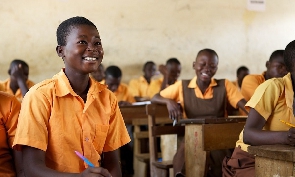The Institute for Education Studies (IFEST) has said the automatic promotion policy that the Ghana Education Service (GES) intends to implement will severely affect the numeracy and literacy for students at the basic level.
IFEST, an education think tank, says because the basic level is the foundation of a child’s education, it deserves all the needed attention.
“In Ghana, one of our biggest challenges has always been literacy and numeracy as evident in all national assessments. It is therefore prudent, to allow the pupils to grasp the fundamentals before they are asked to continue to the next level. It is even more vital when a new curriculum is at its implementation stage,” IFEST said in a policy assessment document released to GhanaWeb.
The assessment by IFEST is in reaction to plans by the Ministry of Education and the GES to promote pupils to their next level when schools resume in January 2021.
The announcement has received mixed reactions from stakeholders and the general public.
While some think that it is in order because of the distortions in the academic calendar because of the COVID-19 pandemic, others are of the view that this practice is a lacklustre approach to fixing the challenges in the academic calendar.
In the policy assessment document, IFEST analyses the decision in the context of Ghana’s unique situation and states that the decision to promote the pupils en masse is not sound.
Read the full policy assessment document below.
General News of Monday, 19 October 2020
Source: www.ghanaweb.com

















